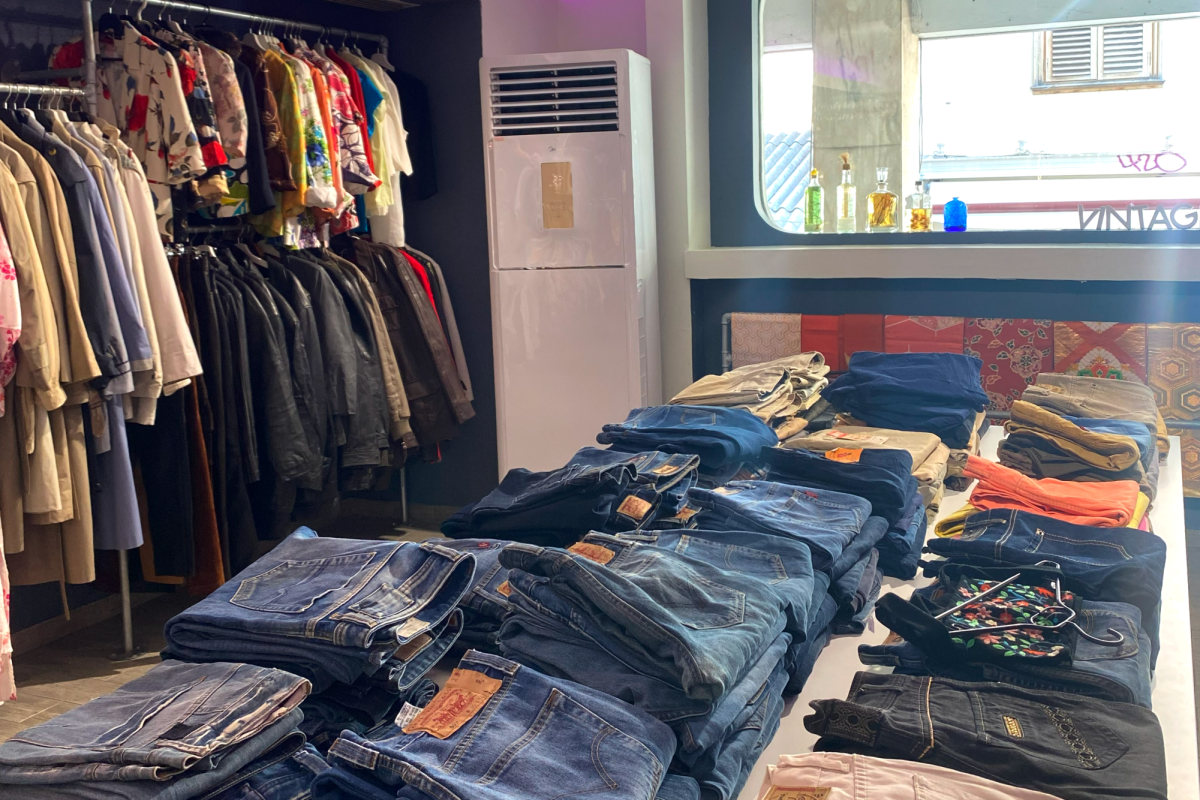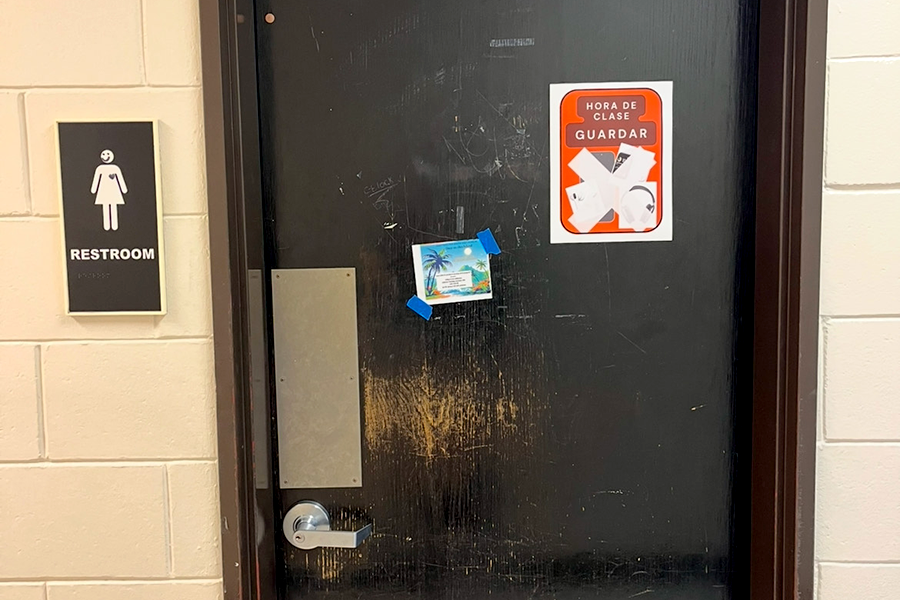It’s no secret that marijuana is a prominent part of the culture at South. According to the 2010 Minnesota Student Survey, a startling 56% of Hennepin County male seniors have tried marijuana at least once, along with 48% of female seniors. The drug is commonly smoked, shared, and sold, and it has had a major impact in many students’ lives.
Some students who regularly use marijuana view its impact on their lives as positive. “I use [marijuana] to enhance certain experiences in my life,” said senior Jim, not his real name, “it’s never been a hard thing for me to acquire, financially, and now I’m able to get it for free a lot of the time, so it doesn’t matter. I use it only when I have something in mind that I’m going to enjoy.”
Students like Jim, who feel the place of weed in their lives as without many negative consequences, also notice that the role of weed in their lives is mostly social.
Junior Sarah, also not her real name, cites the role of weed in her life as a “mostly social” one, but not as something that is necessary to have fun.
“It’s just something we do, like if you go to the mall with your friends,” she said.
Junior Bill, not his real name, agreed with a shrug, saying that “it’s just an activity to do, I guess.”
While the function of weed may be mostly social, students do use it for other things.
“It’s only one of the things I use to relax myself,” said Jim. “Just so that I don’t get mentally dependent at all, I kind of use both drinking tea and meditation and also exercise sometimes as other relaxants.”
However, the relaxing properties of marijuana are not what all teens are looking for. In fact, senior Jeff, not his real name, cites this characteristic as a reason he quit smoking.
“[Weed] makes me lazy. it makes me not as motivated,” said Jeff. “It’s prevented me from a lot of schoolwork. During [my sport] season, I stopped completely because I knew how much it affected me.”
“If you do it every day like I did, it starts to… not take over your life, but you’re dependent on it, like to fall asleep, to get hungry, just because you’re bored,” continued Jeff. He recounted the first time he smoked, when his cousin brought marijuana over to his house and did so more and more often.
“The more he brought it, the more I was willing to try, because I really wanted to feel high; I was curious. So I finally did, I was like ‘man, this is so fun, I’m hungry, everything’s goofy, it’s just a good time,’” recalled Jeff.
“But if you misuse it,” Jeff continued, “it’s so bad for you. Kids don’t really notice when they misuse it until they get a reality check.”
Jeff admits that weed has had a noticeable impact on his social life. “If it wasn’t for weed, I don’t think, socially, I’d be where I am,” he said, “Weed did introduce me to new people. The more parties you go to, the more people you get to know, and your social network gets bigger.”
“The only major role that [marijuana] plays is a social one,” Jim reaffirmed, “because a lot of my friends smoke, but other than that, I don’t think it plays that big of a role in contributing to me as a person.”
Anne Gorton, South’s Substance Abuse Counselor, sees the role of marijuana at South differently.
“The way it impacts the culture here at South is by interfering with students reaching their full potential,” she said.
“Smoking marijuana has a bunch of different unintended consequences, everywhere from breaking trust with family to impacting a person’s brain development or brain function,” Gorton continued.
Sarah has experienced a break of trust with her family firsthand, explaining that her mother was disappointed in her when she found out that Sarah smoked weed.
“Getting caught is the worst thing ever,” Sarah said adamantly, using the experience of getting caught by her mom as one of the reasons she had decided to stop smoking for a while.
However, not everyone has the same relationship with their parents. In fact, some parents are comfortable with their teenagers smoking weed to the point of smoking with them at times.
“My mom is totally fine with it now that I’m a senior and I’m practically an adult,” said Jim, “she had mixed feelings at first, but once I proved to her that I’m responsible and on a good path as far as my future goes, she mellowed out.”
While Jim’s mom has gotten used to her son smoking on a regular basis, his dad is not quite as lenient.
“My dad definitely knows, but I think he’s in denial,” said Jim. “He turns a blind eye, which I feel like a lot of parents do if they don’t really want to face up to the fact that their kid’s smoking.”
As for the impact of marijuana on the functioning of teenage brains: one study presented at a Society for Neuroscience meeting concluded that people who start smoking weed at a young age have more trouble with focus and attention, along with experiencing cognitive shortfalls, or a general lag in mental processes.
Weed is commonly referred to as a gateway drug, but while it may be a prominent influence in several teens’ lives, it may not necessarily lead to harder drugs.
“I wouldn’t say it’s a gateway drug,” said Jim, explaining that his venture into other drugs has been very limited and never frequent.
“I actually have issues with the term ‘gateway drug,’” admitted Gorton. “It used to mean that once you took this one step, then you would for sure take the next into a different drug. I don’t think that’s necessarily true.”
While marijuana may not necessarily lead to experimentation in harder drugs, Gorton continued to say that “It is very unlikely that a person that does other drugs -meth, crack, mushrooms, prescription- it is very unlikely that they never smoked marijuana.”
One article on the East Bay Express website- a website consisting of news coverage relevant to Oakland, Berkeley, and the greater East Bay- suggests that marijuana should not be considered a gateway because it “increases the appetite for intoxicants,” but rather because it creates a gateway to hard drug sellers since both soft and hard drugs are illegal in the U.S., for the most part. One proposed solution is to “separate the markets and let people who want soft drugs get them without having to go to drug dealers, then we can reduce the gateway.”
A recent UC Berkeley study cited in the same article shows 14% of Dutch teenagers reporting past-month marijuana usage, while 15.6% of American teens reported using weed in the past month. Part of these statistics may be due to the presence of marijuana in America’s pop culture. Everywhere from music at the top of the charts to movies like “Pineapple Express,” weed is an omnipresent drug.
“Popular music is definitely very drug centered, to the point of idolizing [marijuana],” said Bill. “Even in music that’s not drug-based, there are definitely a lot of influences, like if the artists were probably high [when] they said a lot of stuff.”
“A lot of the kids at South who smoke weed listen to ‘pot music,’ like Curren$y, Wiz Kalifa, all those mellow rappers,” added Jeff. This connection is more than just an observation: one study from the University Of Pittsburgh School Of Medicine found that “students who listen to music with the most references to marijuana are almost twice as likely to have used the drug than their peers whose musical tastes favor songs less focused on substance use.”
Gorton, too, recognized the prominence of weed in pop culture, noting that “it is celebrated, glorified, normalized.”
While marijuana seems to be all around us, Jim insists that it hasn’t changed his personality or lifestyle in significant ways. “It definitely doesn’t stop me from engaging my mind in things,” he said, “but it spurs some anti-authoritarian feelings.”
Jim continued to say that before smoking weed, “I did a fair amount of the same stuff. If anything, I didn’t exercise as much, and I cared a lot more about what people thought of me.”
“My views have changed,” said Sarah about how her life is different after she started smoking, “I’m more open to things.”
Bill insisted that his lifestyle hasn’t changed, “[weed is] just an added element.”
Despite the risks, both physical and mental, not to mention the possibility of being imprisoned, marijuana continues to be a significant part of some teens’ lives.
While Jim admits that weed plays a major role in his social life, he asserts that it is not essential when hanging out with friends. “Within my friend group, people have had to quit or cut back various times, and they’ve stayed hanging out with us,” he said, “I’ve heard it’s different with other friend groups, they’re more tense about it, but in my friend group, the culture is relaxation and good vibes and it doesn’t really matter how you get there.”






